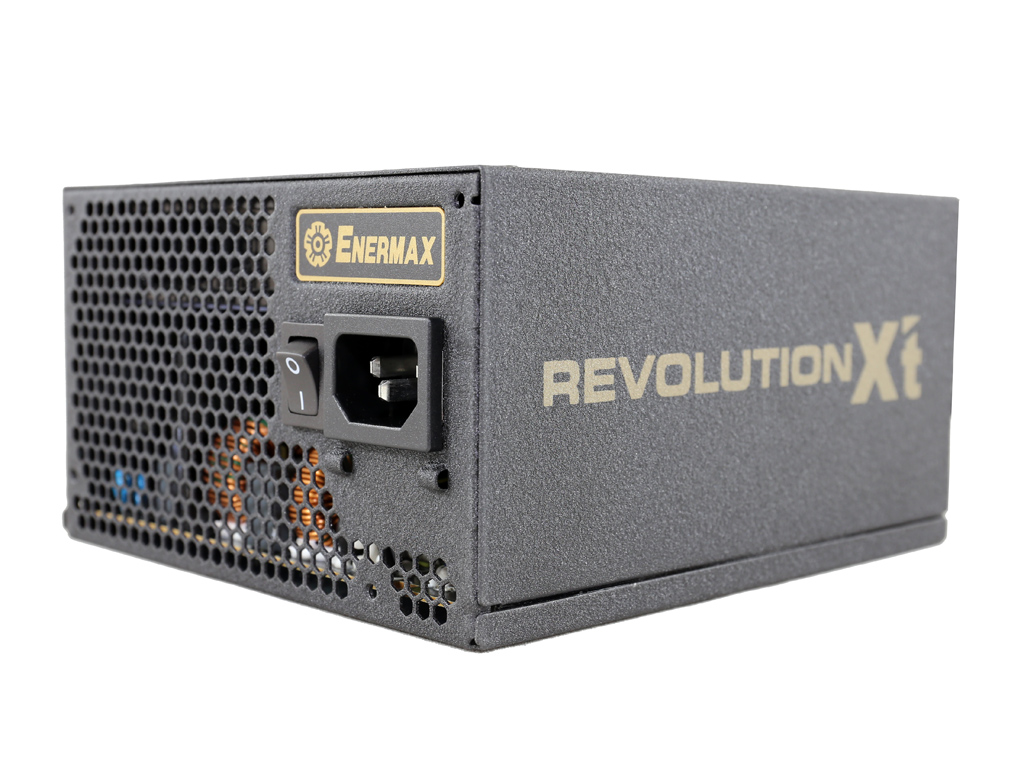Enermax Revolution X’t II 750W Power Supply Review
Enermax recently released a successor to the Revolution X't line and the new models are made by CWT, featuring 80 PLUS Gold efficiency, Japanese caps and a quality fan. Today, we're testing the ERX750AWT model.
Why you can trust Tom's Hardware
Pros, Cons And Final Verdict
Enermax uses a decent platform as the foundation of its new Revolution X't II line. However, CWT doesn't build the Revolution on its best production line, so soldering quality is merely mediocre. This ends up looking pretty weird since Enermax spared no expense on components like the filtering caps (with all electrolytic caps provided by Chemi-Con). Meanwhile, the polymer caps come from Chemi-Con and Enesol. In our opinion, Enermax should have asked CWT to pay more attention to manufacturing quality, since competition in the 750W category is ruthless. Moreover, with a price tag of $110 (at the time of writing), the ERX750AWT is only $10 cheaper than Corsair's unit, which includes a longer, 10-year warranty. The sooner Enermax can adjust its price, the better. We'd be looking for pricing under $100, close to what EVGA charges for its GQ 750. Only after a significant price cut can this 750W Revolution X't II model become an attractive choice for enthusiasts looking for a capable and quiet PSU.
During the hold-up time tests, where we switch the PSU on and off as it operates under full load, we encountered a catastrophic failure after several cycles. In short, one of the primary switchers exploded. We strongly believe that this was an isolated incident. Moreover, this is an unlikely real-world situation since it's improbable that a PC will apply full load immediately after the PSU is switched on. Still, we have to mention it since we rarely encounter trouble in this scenario. Enermax has already sent us a second sample, which we will test under the same scenario in order to check if it will operate normally. We will report back with our findings, once we finish the evaluation of the second sample. (5/13/2016 update: The second sample arrived, we used exactly the same test scenario and all rolled fine this time)
Enermax's ERX750AWT offers decent overall performance. Its most notable advantages are tight +12V load regulation, increased efficiency under normal loads and quiet operation. This PSU also uses a high-quality twister-bearing fan that should last long after the PSU stops working, though the Japanese electrolytic caps ensure that won't be anytime soon either. Obviously, Enermax trusts CWT's platform, otherwise it wouldn't offer a five-year warranty. The PSU chassis' matte finish is also attractive, which you may find important.
On the other hand, this PSU's downsides include a lower than required hold-up time, an inefficient 5VSB rail and lower-than-expected efficiency under light loads. Ripple suppression on the minor rails could be better as well, since the competition set the bar high in this area. If the unit's price tag falls to $90, the ERX750AWT could be a good alternative to EVGA's 750 GQ.
MORE: Best Power Supplies
MORE: Power Supplies 101
MORE: How We Test Power Supplies
MORE: All Power Supply Content
Aris Mpitziopoulos is a Contributing Editor for Tom's Hardware, covering Power Supplies.
Follow us on Twitter @tomshardware, on Facebook and on Google+.
Get Tom's Hardware's best news and in-depth reviews, straight to your inbox.
Current page: Pros, Cons And Final Verdict
Prev Page Performance, Performance Per Dollar, Noise And Efficiency Ratings
Aris Mpitziopoulos is a contributing editor at Tom's Hardware, covering PSUs.
-
powernod The fact that the PSU collapsed during the "Hold-UP time / Power_OK" tests, clearly proves -in my opinion-, how important these tests are, since they are an indication of how properly a PSU can react during stressful situations. ;)Reply -
turkey3_scratch Good unit. Has some things that could be improved, but good. Wish there was much more to say.Reply -
Aris_Mp actually I rarely see a PSU going boom in these tests. Will wait for the second sample to arrive and see how it goes under the same scenario.Reply -
turkey3_scratch Reply17939497 said:actually I rarely see a PSU going boom in these tests. Will wait for the second sample to arrive and see how it goes under the same scenario.
Oh I thought you already got the second sample and it tested fine, guess I misread that. -
GearUp The older line X't have been selling for around $82 so I would have hoped for a lower price as well. Personal experience still favors Enermax since 0/6 of my units failed within 3 months while it was 1/3 for each of 2 different competitors. I still factor in return costs at this point.Reply -
Aris_Mp Just finished testing the second sample and no fireworks this time, so apparently the incident with the first sample (during the hold-up time tests) was just an isolated one.Reply
In addition I confirmed that there is no OCP on the minor rails either, as I suspected. -
android_dev The older Enermax Revolution 87+ series have better build quality ,features and performance than their X't counterparts. Then again it was a more expensive platform to begin with.Reply -
GearUp Correction on returns: Only one supply was returned within 3 months which is good for returns. The other failed due to the motherboard or graphics card after 16 months. Some supplies have return rates well over 20 percent.Reply
